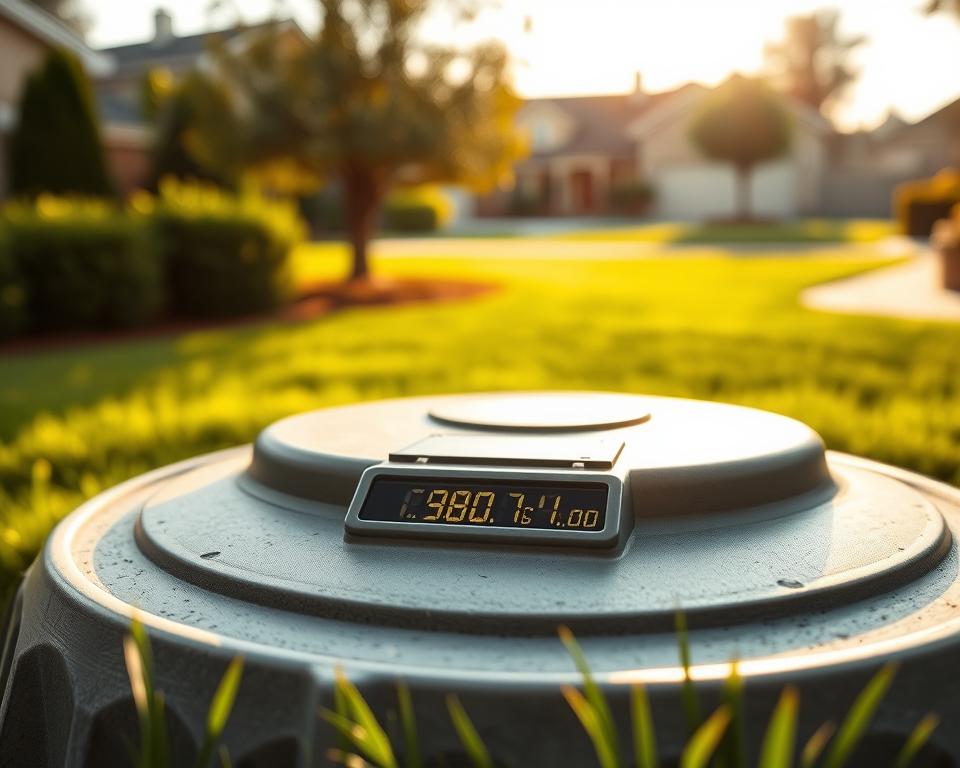Cleaning a Septic System: Safeguard Your Tank Condition
Do you ever thought about the ramifications of neglecting septic system care? For homeowners relying on these systems for wastewater treatment, foregoing routine care can cause hefty expenses. It also creates dangers to both well‑being and the surroundings. Servicing your septic system isn’t just a simple task; it’s essential for ensuring your household operates efficiently. By consistently pumping your septic tank, you stop solid waste accumulation and prolong the service life of your system. This proactive stance allows you to dodge any unwanted situations. Learn the importance of septic tank maintenance and the process required with septic system service.
Primary Points
- Regular septic system pumping is crucial for preventing hefty fixes.
- Overlooking cleaning can result in dangerous conditions for your loved ones.
- Knowing your septic system aids in effective stewardship.
- Indicators of a malfunctioning septic system should be recognized quickly.
- Professional contractors can support in keeping optimal tank health.
Understanding Your Septic System
A septic system is an effective in‑situ approach for processing wastewater. It mainly includes two parts: the septic tank and the drainfield. Both are vital for ensuring proper sanitation and safeguarding the ecosystem.
The septic tank receives wastewater from your home. In it, solid particles settle to the floor, and fluids rise to the top. Naturally occurring bacteria within the tank break down the organics, making the liquid waste simpler to treat. This initially processed wastewater then moves to the drainfield for additional filtering by the soil, finishing the cleanup.
It’s important for homeowners to understand the mechanics of their septic system. Learning how the septic tank and field function in tandem can lead to improved system care. This knowledge supports proper maintenance strategies, helping guarantee the system’s robustness.

Significance of Consistent Septic System Cleaning
Routine servicing of the septic system is crucial for home and environmental health. If overlooked, unprocessed wastewater can leak into your yard. This overflow might lead to groundwater contamination, creating health hazards. By keeping the septic system clean, you safeguard your loved ones and the community.
It’s recommended to pump the septic system every three to five years, based on how much you rely on it. Such maintenance is not just eco‑friendly; it heads off big bills. A septic system that’s well‑maintained operates more reliably, ensuring a cleaner household and a healthier ecosystem.
Indicators Your Septic Tank Needs Attention
Homeowners need to identify signals that their septic tank may need servicing. Common symptoms to look out for are:
- Slow water flow in sinks, bathtubs, and loos
- Foul odors near the absorption area
- Wastewater overflows in indoor pipes
- Extended soggy spots or extra‑green patches of grass on top of the septic system
It’s critical to identify these symptoms promptly to prevent serious septic tank failures. Regular inspections are essential. They find issues before they become pricey fixes. Inspecting your system periodically guarantees it functions well and lasts longer.
Keeping watch and acting swiftly are essential for septic system upkeep. By observing these warning signs, you can keep your septic system in optimal health.
Septic System Cleaning Intervals
Servicing your septic system regularly is central to ensuring your home’s plumbing in good order. Experts usually recommend pumping the septic tank every three to five years. However, this can differ depending on the size of your home, how much water is consumed, and the volume of your tank.
If you have a high‑occupancy household that draws more water, you might need to clean the system more frequently. Tracking your water usage can guide you on if you need to modify your pumping schedule.
All in Sanitation encourages setting up a reliable pumping schedule that matches your household’s unique needs. Sticking to a routine maintenance routine maintains your septic system running efficiently and sidesteps hefty repairs.
Septic System Cleaning: Top Tips
For a septic system to keep robust, homeowners must follow crucial guidelines. It’s critical not to dispose of items that won’t break down; doing so avoids obstructions and keeps the system functioning properly. Similarly, reducing household chemical usage helps maintain the essential bacterial ecosystem. These actions are vital for the system’s longevity and performance.
Taking initiative with scheduled inspections is crucial. Arranging routine assessments can detect issues early, facilitating immediate solutions. Additionally, saving water through fixing leaks and conscious usage supports septic tank health. These measures ensure the system runs efficiently for decades.
It’s also essential not to drive on the absorption area. Maintaining this area open lets it adequately handle liquid waste, protecting your system from damage. Heeding advice from professionals like All in Sanitation also boosts septic system care.
The Procedure of Septic Tank Pumping
For homeowners, learning the septic system cleaning process is crucial. A licensed septic pumper should conduct scheduled septic tank pumping to ensure your system functioning efficiently. The first step is evaluating the tank’s condition to determine when it requires pumping.
A septic tank requires pumping once the solids fill about a third to one‑half of its volume. The licensed septic pumper will then extract these accumulations. This procedure maintains the system’s performance. Furthermore, the appointment may involve examining the tank for possible issues, enabling prompt fixes.
Keeping a journal of each pumping visit is smart. This log enables you to track their septic system’s maintenance, and is useful if listing the property. Adequate septic system maintenance improves its service life and functionality, heading off expensive fixes later on.
Septic Tank Check‑Up: What to Examine
Routine inspections are essential for your septic system’s well‑being. Using a comprehensive septic tank inspection checklist can reveal potential issues early. Inspections should be done by a licensed contractor every 1‑2 years. They will measure sludge buildup and the scum thickness during this check.
Checking the baffles and outflow filters is also crucial. These parts are critical for your septic system’s smooth function. Finding seepage or failures early can prevent high repair costs. Forward‑thinking measures, like using an inspection checklist, extend your system’s lifespan and performance.
Professional Septic System Services
Using specialized septic system services is vital for your septic system’s integrity. By choosing a company like All in Sanitation, you make sure that experts handle the cleaning, check‑ups, and fixes meticulously. Licensed septic professionals carry special know‑how, helping homeowners to sustain the system’s best functionality over the years.
Servicing by certified technicians reduces the chance of sudden failures and hefty repairs. These services feature detailed inspections that assess the system’s status, identifying potential problems before they escalate. Taking this preventive approach greatly prolongs your septic system’s service years.
Ultimately, handing over your septic system to certified pros offers reassurance. Partnering with companies such as All in Sanitation utilizes their expertise. It ensures the wellbeing of your tank, fostering confidence in its maintenance.
Septic System Maintenance Tips for Homeowners
Homeowners have the capacity to maintain their septic systems running reliably. Using efficient care hints significantly improves their operation. Making easy tweaks to how we use water, like limiting extra use and spreading the use of appliances, decreases strain on the system.
Adding efficient fixtures in your restrooms and galleys significantly bolsters septic health. These fixtures decrease water use without compromising performance. Skipping garbage disposals is prudent too, as they cause more residue in the system, requiring more frequent upkeep.
Regular inspections and adhering to a thorough maintenance routine will lengthen your septic system’s lifespan. Being mindful of everything that enters your drains is crucial for maintaining a robust septic environment. By embracing these measures, you’ll immensely boost your septic system’s performance and longevity.
Common Septic System Repairs
Septic systems may face various issues over time, calling for repairs. Common concerns include leaks, faulty baffles, and percolation troubles in the drainfield. By spotting the symptoms promptly, homeowners can address them rapidly, keeping their system is in sound condition.
Standard repairs involve:
- Changing out faulty components to re‑establish system integrity
- Mending or changing broken lines to stop leaks
- Unblocking blocked pipes to ensure proper drainage
Fixing septic problems promptly not only reduces outlays over time but also prolongs the system’s service years. Scheduled check‑ups and maintenance can help prevent these issues, aiding in the care of a robust septic system.
Bringing It All Together
Maintaining your septic system sound is central to environmental and personal well‑being. Consistent services and check‑ups avoid expensive repairs and health risks. Acting early with septic care saves time and lowers concern.
Using professionals like All in Sanitation guarantees first‑class upkeep suited to your requirements. Their knowledge assists catch issues quickly, avoiding major troubles and emphasizing the need for routine inspections.
Adopting best practices for septic maintenance promises long‑term system performance. A bit of maintenance today guarantees a healthier septic system in the years ahead.

